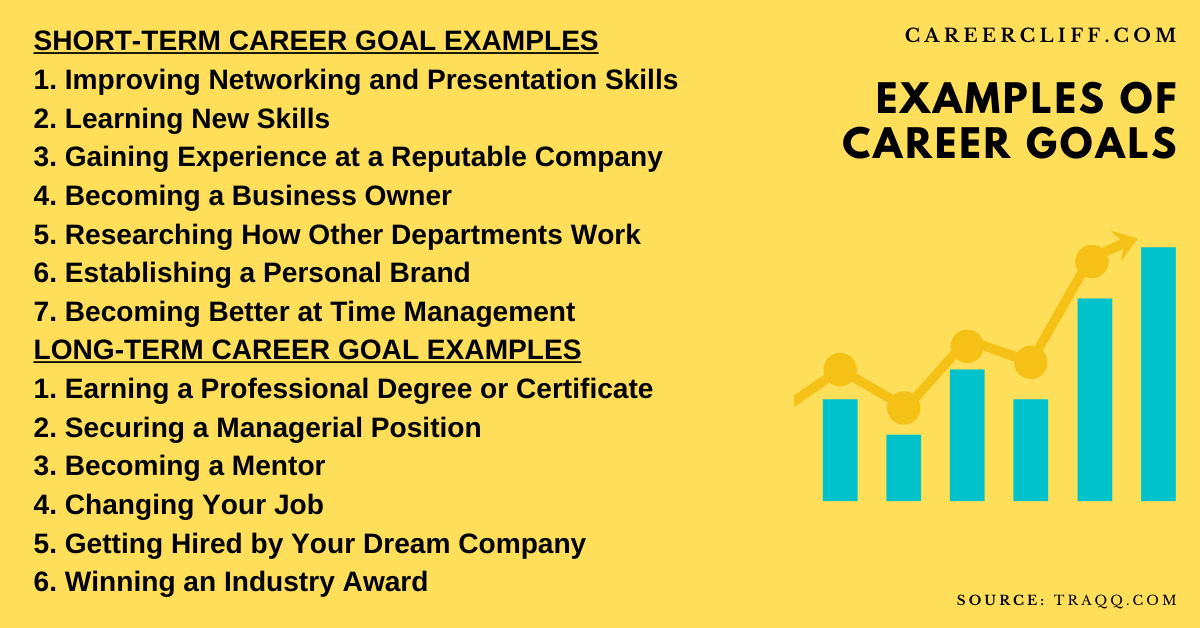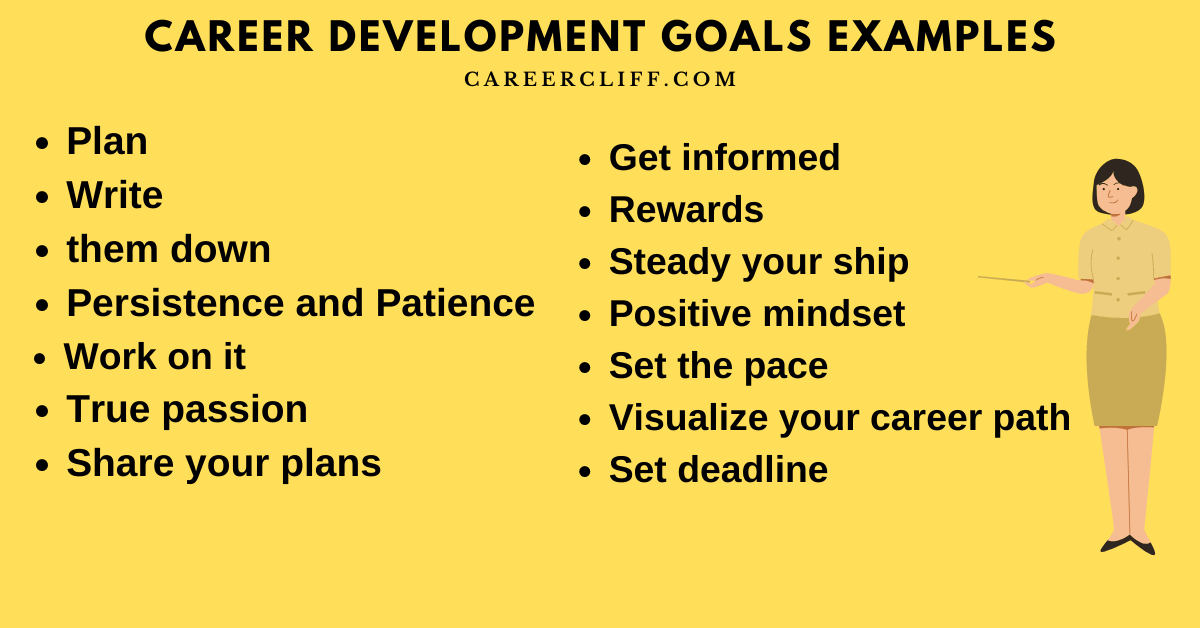Career Development Goals are the roadmap to success, guiding individuals towards professional growth and fulfillment. From short-term aspirations to long-term visions, each goal plays a vital role in shaping one’s career path. Explore the importance, types, strategies, and tips in this dynamic journey towards success.
Discover how aligning personal values, utilizing SMART criteria, and celebrating milestones can propel you towards achieving your career aspirations. Let’s dive into the world of Career Development Goals and unlock your full potential!
Importance of Career Development Goals
Setting career development goals is crucial for professional growth as it provides a roadmap for individuals to progress in their careers. By defining clear objectives and milestones, individuals can focus their efforts on areas that will help them advance in their chosen field.
Enhancing Skillset
- Setting career development goals can positively impact one’s career trajectory by enhancing their skillset. For example, a goal to learn a new programming language can open up opportunities for higher-paying jobs in technology.
- Developing new skills not only makes individuals more marketable to potential employers but also boosts their confidence and motivation in the workplace.
Advancing in Career
- Another way career development goals can positively impact one’s career trajectory is by helping individuals advance in their current role or move into a higher position.
- For instance, setting a goal to complete a leadership training program can prepare individuals for a promotion to a managerial position.
Increased Job Satisfaction
- There is a strong correlation between goal-setting and increased job satisfaction. When individuals have clear career development goals, they are more motivated and engaged in their work.
- Accomplishing goals gives individuals a sense of achievement and fulfillment, leading to higher job satisfaction and overall happiness in their professional lives.
Types of Career Development Goals

When setting career development goals, it’s important to consider both short-term and long-term objectives. Short-term goals help you focus on immediate progress, while long-term goals provide a roadmap for your future career growth. Let’s take a closer look at the different types of career development goals.
Short-Term Career Development Goals
Short-term career development goals are typically achievable within a year or less. These goals are specific, measurable, and focused on improving your skills or knowledge in the near future. Here are some examples of short-term career development goals:
- Completing a certification course to enhance a specific skill
- Networking with professionals in your industry to expand your connections
- Improving time management skills to boost productivity
Long-Term Career Development Goals
Long-term career development goals are broader objectives that may take several years to accomplish. These goals require strategic planning and a clear vision of your desired career path. Effective long-term career development goals possess the following characteristics:
- Specific and well-defined to provide clear direction
- Challenging yet achievable to drive growth and motivation
- Aligned with your values and interests for long-term satisfaction
Skill-Based Goals vs. Advancement-Based Goals
When setting career development goals, you may focus on improving specific skills or advancing to higher positions within your field. Let’s compare and contrast skill-based goals with advancement-based goals:
- Skill-Based Goals: These goals are centered around enhancing your abilities, knowledge, and expertise in a particular area. Examples include mastering a new programming language or improving public speaking skills.
- Advancement-Based Goals: Advancement-based goals involve progressing to higher levels of responsibility or authority within your career. This could include aiming for a promotion to a managerial position or transitioning to a leadership role.
Strategies for Setting Career Development Goals

Setting career development goals can be a crucial step in achieving success in your chosen field. Here are some strategies to help you set effective goals:
Aligning Personal Values with Career Development Goals
It’s essential to align your personal values with your career development goals to ensure that you’re working towards something that truly matters to you. Take the time to reflect on what you value most in life and how your career goals can help you fulfill those values.
SMART Criteria for Setting Goals
When setting career development goals, it’s important to follow the SMART criteria:
- Specific: Clearly define what you want to achieve in your career.
- Measurable: Make sure your goals can be quantified or measured in some way.
- Achievable: Set goals that are realistic and within reach.
- Relevant: Ensure that your goals align with your overall career objectives.
- Time-Bound: Set a specific timeline for when you want to achieve each goal.
Breaking Down Larger Career Goals
Breaking down larger career goals into smaller, manageable steps can make them less overwhelming and more achievable. Here are some techniques to help you break down your goals:
- Divide your goal into smaller milestones.
- Create a timeline with deadlines for each milestone.
- Identify the resources and support you need to reach each milestone.
- Regularly review and adjust your plan as needed.
Tracking and Achieving Career Development Goals
When it comes to tracking and achieving your career development goals, it’s essential to have a clear plan in place. Setting goals is just the first step, but monitoring your progress and staying motivated along the way are equally important.
Methods for Tracking Progress Towards Career Development Goals
- Regularly review your goals and assess where you currently stand in relation to them.
- Keep a journal or use a tracking tool to document your progress, setbacks, and achievements.
- Seek feedback from mentors, colleagues, or supervisors to gain different perspectives on your development.
- Set specific milestones and deadlines to help you stay on track and measure your progress effectively.
Strategies for Overcoming Obstacles and Staying Motivated
- Break down your goals into smaller, manageable tasks to prevent feeling overwhelmed.
- Stay adaptable and be willing to adjust your approach if needed to overcome challenges.
- Visualize your success and remind yourself of the benefits of achieving your career goals.
- Seek support from peers, friends, or professionals to help you stay motivated and accountable.
Examples of Celebrating Small Milestones to Achieve Larger Career Goals
- Host a small celebration or treat yourself when you reach a significant milestone in your career development journey.
- Share your achievements with others to receive encouragement and recognition for your hard work.
- Reflect on how far you have come by acknowledging the progress made towards your ultimate career goals.
- Use positive reinforcement and rewards to maintain momentum and continue striving towards success.
